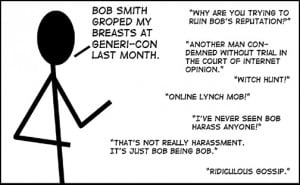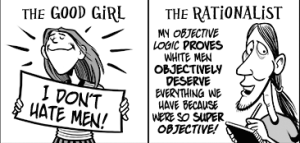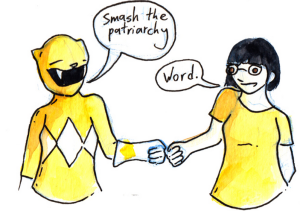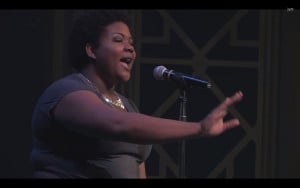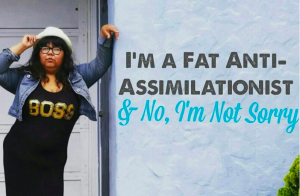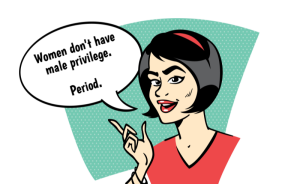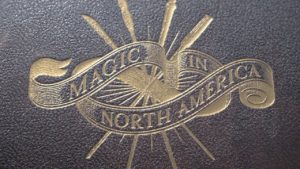
Source: YouTube.
I came to the Harry Potter game late in life, kicking and screaming like the English major and literature snob I thought I was.
I razzed the series and its popularity so much that a friend gave me what they thought was the first book on audio as a gag gift.
I forgot about it until a long, late-night drive through North Dakota had me popping in the CDs to Harry Potter and the Prisoner of Azkaban (which turned out to be the third book in the series). Thanks to fantastic storytelling and the magical narration of Jim Dale, I was hooked.
That was thirteen years ago and since then my Harry Potter fanaticism has melded itself to my identity, especially now that my eight-year-old can share in the reading and fandom.
Here are some of my Potterhead bona fides you might relate to:
- More than one grad school paper utilized a central Harry Potter theme;
- I have dog-eared paperbacks for everyday reading, collectible first edition hardcovers I’ll never open, the illustrated iBooks, and the British versions displayed in my living room alongside every Harry Potter-related story Rowling published pre-2016;
- hours of my life were spent waiting for the midnight release/showings of books/films;
- my daughter and I cosplay as Gryffindors;
- our family visited the Wizarding World of Harry Potter at Universal Studios, Florida two years ago and it remains one of the highlights of my life; and
- my favorite shirt reads, “I solemnly swear to smash the patriarchy.”
All this to say I don’t criticize my beloved series lightly. Despite its flaws, the franchise has been like a comforting friend these many years, a book of triumphing good that helped me escape a world where evil often wins.
But criticize I must. Though the evil here may seem more banal than overt (as real-world evil is wont to be), friends don’t let friends write racist – and I’ll gladly play Ron to Rowling’s Lockhart.
Before I jump into my critique, a quick recap of how fabulous 2016 has been to Rowling and her legions of fans.
Her new play Harry Potter and the Cursed Child Parts One and Two officially premiered in London on July 30, followed by the book version of the script released July 31 (Harry Potter’s birthday, y’all).
Come November, Fantastic Beasts and Where to Find Them will hit theaters. It’s the first of three films to be adapted from Rowling’s thin tome published in 2001, and acts as a sort of prequel to expand upon the billion-dollar Harry Potter franchise.
The promotional backstory to Fantastic Beasts, which Rowling released on the Pottermore site back in March and titled History of Magic in North America (HOMINA) is where the problem for me lies.
As Rowling continues to release HOMINA-based essays about North American wizardry, many Native fans like me are reeling from what can now only be described as blatant disregard for accurate representation of this continent’s first peoples.
Indigenous Potterheads and those who fight for accurate portrayals of Natives in media have been having conversations about this since HOMINA’s release.
Adrienne Keene has written an extensive point-by-point analysis of all things HOMINA on her Native Appropriates blog. Additionally, Debbie Reese continues to update her curated list of Native criticisms against Rowling on her blog, American Indians in Children’s Literature. Go read those.
Rowling’s Dark Mark on Native Experiences
The Harry Potter series has never been perfect (looking at you Cho Chang and gay Dumbledore), but here’s a quick breakdown of some of what’s wrong with HOMINA, specifically:
- Pan-Indigenous language. Rowling writes about “the Native American community” as if we’re one, monolithic entity, which erases hundreds of tribal nations and our unique cultures and values.
- Eurocentric storyline. Really, the whole thing should just be titled, How White Wizards Made North America Great Again. Rowling’s Natives practiced primitive magic sans wands until Europeans showed them how to use more civilized methods.
- Also, like most US history books begin with Columbus, Rowling presents North American magical history, especially the development of Ilvermorny, only in relation to white wizarding “explorers” and immigrants.
- Objectification of tribally specific beliefs and values. Thunderbirds, skin walkers, pukwudgies, wampuses, horned serpents, and medicine men are all used as tribally nonspecific props to set up HOMINA without recognizing how important these beings are to real and lived Native histories and experiences.
Lots of folks have asked me, “What’s the big deal? She’s an author who makes stuff up. Get over it.” If you’re interested in the long answer to that, I wrote and performed a poem detailing all my feels.
The short answer? The erasure of living people, practices, histories, and beliefs is a Death Eater-worthy trait.
The “it’s fiction” argument is worthless to me. Fictional narratives serve as mighty tools — the fact that schools continue to teach children myths about Thanksgiving and Columbus exemplifies fiction’s influence.
Fiction is so powerful, in fact, that I’m reminded of it on every plane ride when yet another seemingly well-adjusted non-Native adult intones, “Oh, you guys are still around then?”
Popular fiction like HOMINA create environments where it’s easy to treat a whole race of people as sub-human — say, a Tonto-like pukwudgie or a racist mascot — when you don’t think they exist in real life.
This is why diversity in media, and especially in literature, is important.
If we (as consumers) had diverse representations (fictional or real) of Native people the same way white people do, Rowling’s latest wouldn’t be so problematic, because consumers would have a variety of examples from which to base their opinions.
As it is, Natives have very few mainstream representations, and most of those are historical or fantastical. It’s rare to see Natives in contemporary, believable, and multidimensional roles.
Much like the person sitting next to me on any given flight, this might be why the kids in my daughter’s class don’t believe she’s Native: “Where’s your braids, buckskin, and headdress?” they ask.
The subtext is we exist for entertainment only.
On the other hand, white folks have all sorts of affirmative representations in media, so many that it’s easy for kids to place value on whiteness, as well as understand the difference between what is real and what isn’t when it comes to white people.
And there’s the rub.
Multiple scientific and peer-reviewed studies show these media misrepresentations have negative psychological consequences for Natives, and often lead to feelings of inadequacy and depression, which may contribute to the staggeringly high rates of suicide among Native youth.
In other words, Rowling is profiting off Native erasure and marginalization. That’s all I see with every new movie trailer and Pottermore update – billions of worldwide dollars streaming into a narrative based on cultural appropriation.
What’s more, there’s a direct correlation between the erasure Natives face in entertainment media and the erasure of our modern day issues.
For example, one of the most important movements of our time is happening right now in Indian Country, where hundreds of tribal nations and allies have gathered for months to support the Standing Rock Sioux Tribe’s efforts to protect the Missouri River and those who depend on its drinking water from corporate oil interests and state-sanctioned violence.
But who cares about a tribe’s drinking water, or National Guard blockades into the reservation, or vicious dog attacks against women and children at the hands of pipeline private security when Omg you Natives should be happy JK Rowling honors you by writing about William the Pukwudgie!
Rowling – applauded for engaging with fans online and being fairly liberal on social issues, including her stalwart support for a Black Hermoine in the Cursed Child stage production – has refused to acknowledge the many HOMINA criticisms and calls for change from Native people, like this video my daughter and I made to encourage Rowling to write a better, more accurate story.
In fact, Rowling has blocked Native critics on social media.
It’s like she thinks we don’t exist or something.
Preparing Authors Like Rowling to Earn OWLs in Inclusion
Rowling isn’t alone. (Mostly white) content creators are called out daily for misrepresenting the racially diverse characters in their work – if they include characters of color at all.
I’m often consulted by white media makers looking to include someone or something Native in their books/movies/comics/art. Here are some basic tips for diversifying content in general. Beyond this, We Need Diverse Books has a bunch of great resources (be sure to follow them on Twitter, too).
- A lot of “diversity” seen in entertainment media is based on stereotype. Do some homework and consult with as many people as possible who represent the communities you’re writing about. Wikipedia counts only as a starting place.
- Too often, creators rely on one-dimensional racial characteristics (like “She had tan skin, long, braided hair, and liked to powwow dance”). Rather, aim to build strong, complex characters. A lot can happen in one scene if you care enough.
- The phrase “the Native American people” or “the Native American culture” should never be be uttered.
There are 567 federally recognized tribes and hundreds more unrecognized tribes across the United States, each with their own language, beliefs, government, histories, etc. Not all of them traditionally wore their hair long or wore headdresses, nor did they all live in tipis and hunt buffalo.
Natives are not monolithic, yet lots of media depicts us as such. That’s not creativity. It’s offensive and careless, especially in the age of Google.
- Enlist a diverse group of beta readers/viewers to catch issues in your work pre-publication. Remember to recognize and even pay betas for their work in helping you. It’s also nice for your audience to know if you worked with a cultural consultant and who they are and where they’re from.
- While I discuss mostly race-based issues, it goes without saying that your work should include diversity that isn’t just racial. I would pay very good money to read about the adventures of an anxiety-riddled, fat Lakota Two Spirit navigating high school in a world overrun by space invaders!
- Check your privilege. There’s a reason we don’t see a lot of diverse representations in media, because those narratives are often created from a cisgender, heteronormative, and able-bodied white lens – or for those audiences.
- Check your entitlement. No matter how open-minded/friendly/rich you are, another’s culture, food, spirituality, and stories do not belong to you, regardless of who you may have given permission. I know of more than a few Native writers, for instance, who won’t publish something, fictional or otherwise, without the consent of tribal leaders, and even then refuse to publish in order to preserve the story’s cultural authenticity and value.
- Criticism often begets defensive attitudes and behaviors (such as Twitter blocking instead of engaging). If and when you’re called onto the carpet, say “I’m sorry” (read: not “I’m sorry you’re offended,” just “I’m sorry”). Then learn something.
If you’re not willing to put in the amount of work equal to what people of color expend dealing with daily microaggressions and overt racism, then stop playing with marginalized experiences and cultural narratives that aren’t your own.
***
As media consumers, you have a direct role to play in all this. We can and should demand better, more inclusive media.
Natives make up roughly 2% of the total US population today (a little more than five million people). That’s fewer people than Rowling’s Twitter followers.
We need ally support to help spread our messages, demand better representation, and broadcast issues affecting our communities today.
While filling out and sharing what Ilvermorny house you were sorted into may be fun and mindless, instead, consider engaging with and supporting actual Indigenous media.
For instance, when it comes to books, I’m not only talking about reading Sherman Alexie and Louise Erdrich (who are, of course, amazing), but also (my favorites) Cynthia Leitich Smith, Daniel Heath Justice, Mari Kurisato, and VR Janis, among many others. For lists of must-read Indigenous books and authors, visit here and here.
Choosing Native-produced media ensures accurate and continued self-representation. Please don’t support media makers who bulldoze over already marginalized communities.
In Harry Potter and the Sorcerer’s Stone, Dumbledore says, “It takes a great deal of bravery to stand up to your enemies, but a great deal more to stand up to your friends.”
Criticizing our heroes may not be the easiest thing to do, but it may just be the truest form of fandom, especially if the creator can learn from their mistakes, apologize, and move forward.
[do_widget id=’text-101′]
Taté Walker is a Contributing Writer for Everyday Feminism. She is Mniconjou Lakota and an enrolled citizen of the Cheyenne River Sioux Tribe. She lives in Phoenix and is the editor of Native Peoples magazine. Contact her at www.jtatewalker.com and read her articles here.
Search our 3000+ articles!
Read our articles about:
Our online racial justice training
Used by hundreds of universities, non-profits, and businesses.
Click to learn more





